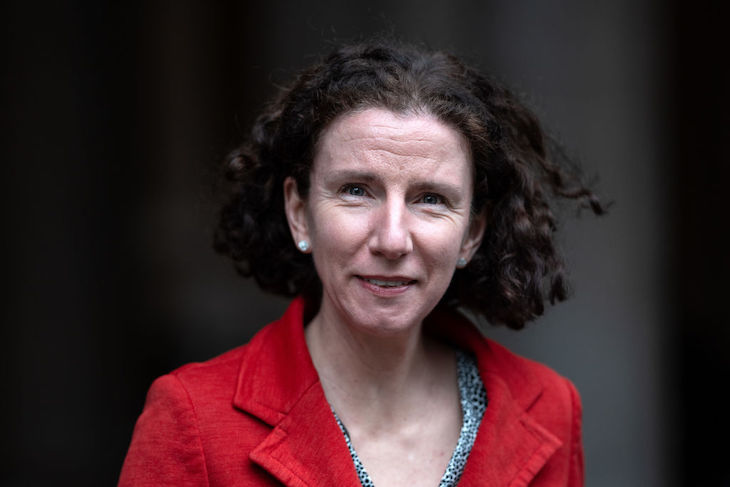Keir Starmer has lost another minister. Anneliese Dodds is stepping down as International Development Minister following No. 10’s decision to slash the foreign aid budget by almost half to pay for an increase in defence spending. That policy decision was announced earlier this week ahead of Keir Starmer’s meeting with Donald Trump at the White House. In her resignation letter to the Prime Minister, Dodds warns that ‘these cuts will remove food and healthcare from desperate people’ and ‘deeply’ harm the UK’s reputation.
Dodds’s departure speaks to an unhappiness in parts of the Labour party
Dodds says that she chose to wait until after Starmer’s Washington trip was completed to allow Starmer to have a united cabinet behind him. With the visit over and government aides crowning it a diplomatic success, Dodds is speaking her mind. The Labour MP says Starmer will find it ‘impossible’ to deliver on his commitment to maintain development spending in Gaza, Sudan and Ukraine, warning that a failure to do this would boost Russia and encourage China to rewrite the rule book on the international rule-based order.
Dodds, who served as Starmer’s shadow chancellor when he was elected Labour leader, says that she accepted defence spending needed to rise. However, she was left dismayed that there was little discussion of how to fund the increase in military spending to 2.5 per cent of GDP by 2027. She only discovered 24 hours before the news was made public that the burden would be placed on aid:
‘I stood ready to work with you to deliver that increased spending, knowing some might well have had to come from overseas development assistance [ODA]. I also expected we would collectively discuss our fiscal rules and approach to taxation, as other nations are doing.
Even 3 per cent may only be the start, and it will be impossible to raise the substantial resources needed just through tactical cuts to public spending. These are unprecedented times, when strategic decisions for the sake of our country’s security cannot be ducked.’
So, what does this mean to Starmer? Already there is some light sniping among Labour MPs at the idea Dodds’s departure would have overshadowed a meeting between the Prime Minister and the so-called leader of the free world. There are some Starmer allies who can see an upside to Dodds’s departure. They say that it feeds into the idea this the PM is a ruthless leader who will make the tough decisions based on national security, even if that means some trade-offs along the way. What’s more, MPs in seats where they face Reform as their main challenger are keen to talk up the decision to cut aid spending to find defence – it is an announcement they want people to talk about.
However, Dodds’s departure still speaks to an unhappiness in parts of the Labour party over the current direction of travel in No. 10. Clive Lewis, who served in Jeremy Corbyn’s shadow cabinet, has described the aid cut as ‘the straw that broke the camel’s back’ in an interview with the BBC. He went on to say: ‘The direction of travel of our own government I think has left not just MPs uneasy but lots of our voter base and I think it’s something the prime minister and the cabinet would do well to reflect on… What is Labour there for? What is a Labour government there for?’ Dodds’s suggestion that higher taxation or borrowing could have been used to fund the defence spending is likely to be backed by parts of the Labour left.
Dodds was once in Starmer’s inner circle. She was one of a number of soft left Labour MPs who were initially put into very senior positions in the shadow cabinet. Over time, Dodds’s position has become more junior. She lost the shadow chancellor brief to Rachel Reeves and then moved to the equalities brief. She did not make the cabinet when Starmer entered No. 10, though managed to eventually secure a position that allowed her to attend cabinet. Do other ministers share Dodds’s concern over the aid cut? Foreign Secretary David Lammy had spoken positively of aid spending before the announcement. It’s also not gone unnoticed that the Energy Secretary Ed Miliband doesn’t look so chipper of late.
As Starmer’s most senior aide Morgan McSweeney puts Downing Street on a more political footing, there is a noticeable shift to policies and positions of the blue Labour tradition. What’s more, while Starmer won praise from the US president this week in what his supporters see as a diplomatic coup, other Labour MPs wonder if cosying up to Trump is such a wise move. It shows how Starmer’s clearer political direction in the past few weeks brings baggage of his own. Starmer seems to have a clearer idea of what he wants to do. The question is how many of his MPs will see red as a result.







Comments